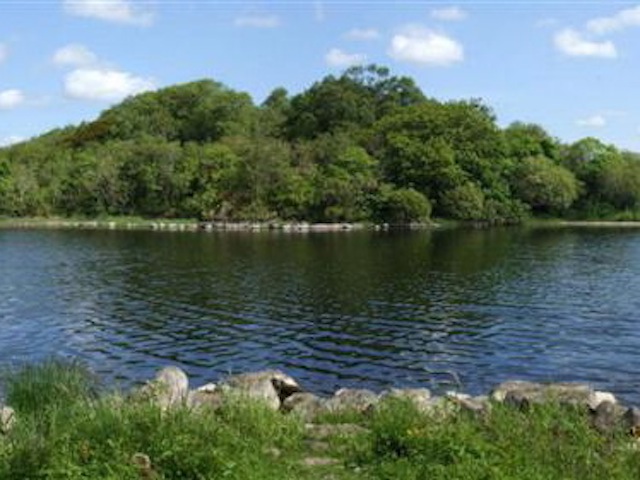Lake Isle of Innisfree by WB Yeats

I will arise and go now, and go to Innisfree,
And a small cabin build there, of clay and wattles made;
Nine bean rows will I have there, a hive for the honey bee,
And live alone in the bee-loud glade.
And I shall have some peace there, for peace comes dropping slow,
Dropping from the veils of the morning to where the cricket sings;
There midnight’s all a glimmer, and noon a purple glow,
And evening full of the linnet’s wings.
I will arise and go now, for always night and day
I hear lake water lapping with low sounds by the shore;
While I stand on the roadway, or on the pavements gray,
I hear it in the deep heart’s core.
_________________________________
I love that the trigger for the writing of this poem was the sound of a fountain in a shop window on Fleet Street in London. I learned about this in a footnote, in the Norton Anthology of Modern Poetry, the note containing a brief passage from Yeats’ autobiography:
I had still the ambition, formed in Sligo in my teens, of living in imitation of Thoreau on Innisfree, a little island in Lough Gill, and when walking through Fleet Street very homesick I heard a little tinkle of water and saw a fountain in a shop-window which balanced a little ball upon its jet, and began to remember lake water. From the sudden remembrance came my poem Innisfree, my first lyric with anything in its rhythm of my own music.
I love that it sounds here, in his description, almost as if the fountain itself were remembering the lake water—rather than Yeats.
And I love that the poem has its source in a sudden remembrance—but Yeats places the poem in the future tense. Actually, he begins with the future tense and moves toward the present.
The poem makes me think of Nina, a woman who was one of my teachers in the uses of imagery for healing. She once told us that when were guiding a person to conjure a healing place we should always call a person back to the present tense. Call them gently, but still call them. Not, the lake was blue and cold. But the lake is blue and cold.
(Say that a person begins to conjure a healing place by remembering a lake. And say that they remember riding the old rickety bus down to the lake and they remember the dock, the soft wood, they remember walking out to the edge of the dock, sitting down, placing their feet in the water. The next question could pull a person into the present tense. What else do you notice? What does the water feel like? Not what did it feel like, but what does it feel like? And what else do you notice? And what else?)
Not I heard lake water lapping.
But now—right now—I will arise and go now—even though the island may be at some distance, or seem to be at some distance———
I hear lake water lapping with low sounds by the shore;
While I stand on the roadway, or on the pavements gray,
I hear it in the deep heart’s core.
Photo from Wikimedia
